News
-
 Space
SpacePhosphorus, a key ingredient of life, has been found in a newborn star system
Astrochemists map phosphorus-bearing molecules in a star-forming cloud, giving clues to how this vital element may have arrived on Earth.
By Adam Mann -
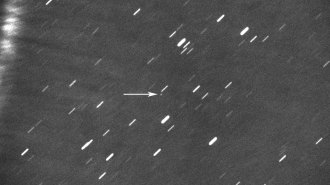 Planetary Science
Planetary ScienceFor the first time, an asteroid has been found nearer to the sun than Venus
A space rock dubbed 2020 AV2, found in close orbit around the sun, probably got there after a series of close encounters with rocky planets.
-
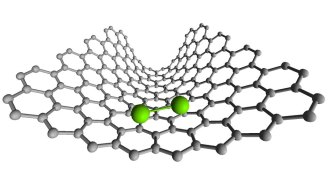 Chemistry
ChemistryA dance of two atoms reveals chemical bonds forming and breaking
Two rhenium atoms approach and retreat from one another in an electron microscope video.
-
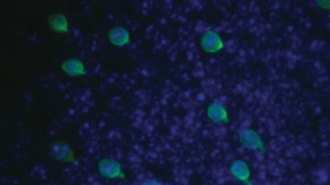 Health & Medicine
Health & MedicineHairy cells in the nose called brush cells may be involved in causing allergies
Some hairy cells in the nose may trigger sneezing and allergies to dust mites, mold and other substances, new work with mice suggests.
-
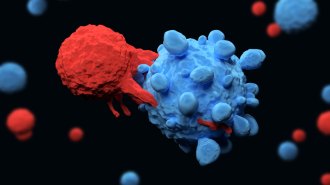 Health & Medicine
Health & MedicineExploding cancer cells can cause serious side effects in CAR-T cell therapies
Blocking a protein caused cancer cells targeted with CAR-T cell immunotherapy to shrink rather than burst, which may help reduce inflammation.
-
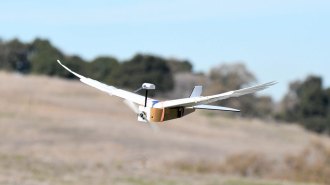 Life
Life‘PigeonBot’ is the first robot that can bend its wings like a real bird
Insights into the joint movements and feather surface structures that help birds control their wing shape could help robotic flyers move more deftly.
-
 Earth
EarthVolcanic gas bursts probably didn’t kill off the dinosaurs
A new timeline for massive bursts of volcanic gases suggests the Deccan Traps eruptions weren’t the real dinosaur killer 66 million years ago.
-
 Health & Medicine
Health & MedicineA new drug lowers levels of a protein related to ‘bad’ cholesterol
The next clinical trial will determine if a drug targeting a protein that carries fat and cholesterol reduces the risk of heart attack and stroke.
-
 Earth
Earth2019 was the second-warmest year on record
2019 was the second-warmest year on record, ending a decade that topped 140 years of heat records.
-
 Space
SpaceA second planet may orbit Proxima Centauri
The star closest to the sun may harbor another planet, this one much more massive and colder than Earth.
-
 Life
LifeThe ‘Blob,’ a massive marine heat wave, led to an unprecedented seabird die-off
Scientists have linked thousands of dead common murres in 2015–2016 to food web changes caused by a long-lasting marine heat wave nicknamed the Blob.
-
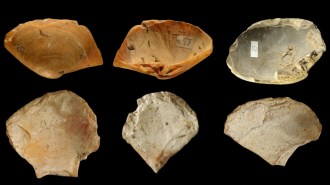 Anthropology
AnthropologyNeandertals dove and harvested clamshells for tools near Italy’s shores
The discovery of sharpened shells broadens the reputation of Stone Age human relatives: Neandertals weren’t just one-trick mammoth hunters.
By Bruce Bower